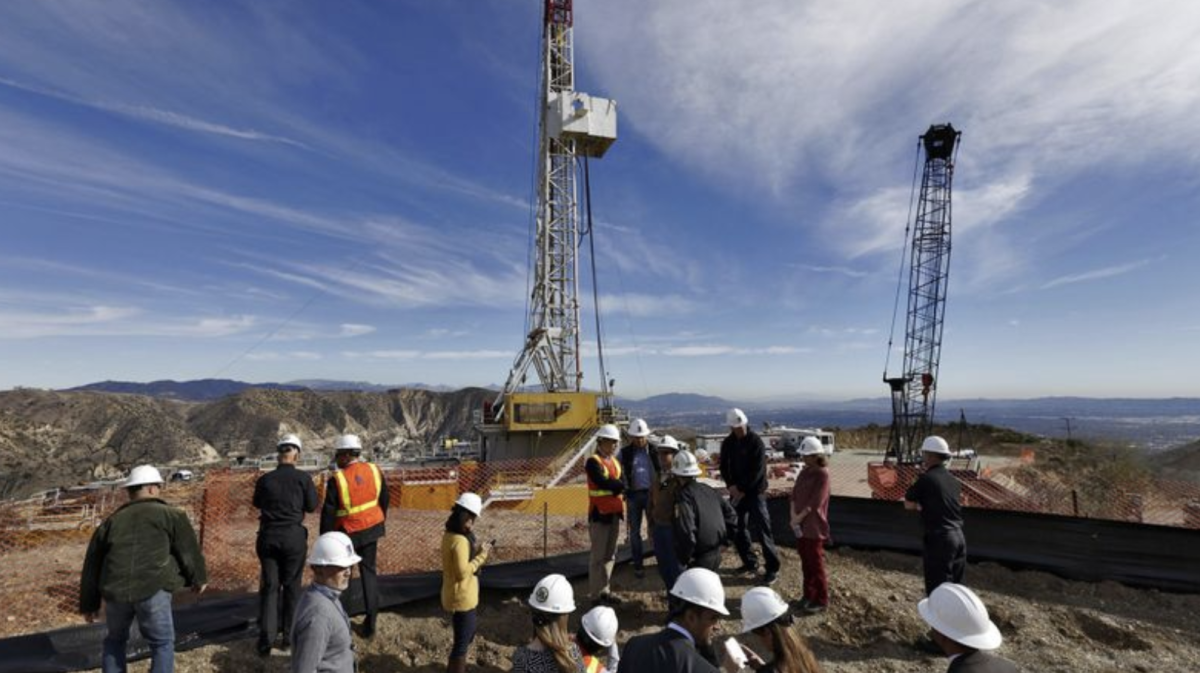Investigators fault Southern California Gas in Aliso Canyon methane leak

- Share via
A 2015 blowout at a natural gas well that led to the largest-known release of methane in U.S. history was the result of a corroded pipe casing and safety failures by a California utility, according to an investigation report released Friday.
Southern California Gas Co. didn’t investigate previous rupture causes at the Aliso Canyon storage field and didn’t assess its wells for disaster potential before the Oct. 23, 2015, blowout, the report released by the California Public Utilities Commission said.
The blowout lasted nearly four months and was blamed for sickening thousands of Los Angeles residents, who moved out of their Porter Ranch homes to escape a sulfurous stench and a medley of maladies including headaches, nausea and nosebleeds.
Blade Energy Partners, which conducted the years-long investigation, said the company should have been able to plug the leak sooner.
The utility has spent more than $1 billion related to the blowout with the majority of that going to temporarily relocate 8,000 families, according to filings with the U.S. Securities and Exchange Commission. It still faces more than 385 lawsuits on behalf of 48,000 people.
The company in a news release highlighted a report finding that said new state regulations and practices by the company address most, if not all, of the causes of the leak.
“Aliso Canyon is safe to operate and Blade’s report indicates the industry-leading safety enhancements and new regulations put in place after the leak should prevent this type of incident from occurring again,” the company said.
The leak started when an old corroded pipe casing under high pressure ruptured and gas began leaking up through the ground, eventually blowing a hole around the well.
More to Read
Sign up for Essential California
The most important California stories and recommendations in your inbox every morning.
You may occasionally receive promotional content from the Los Angeles Times.










